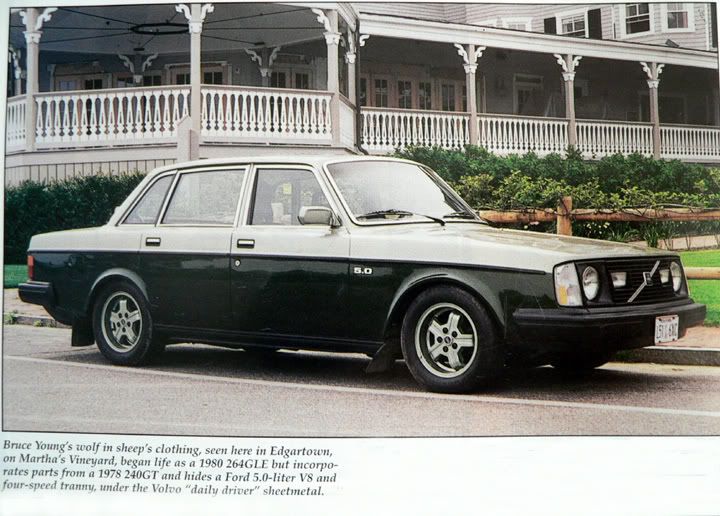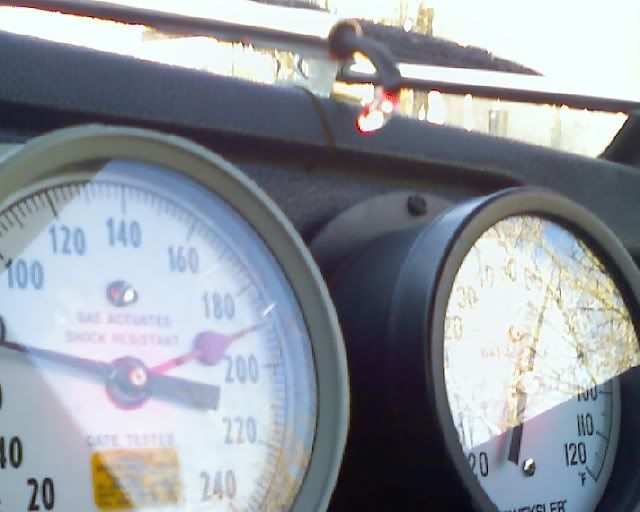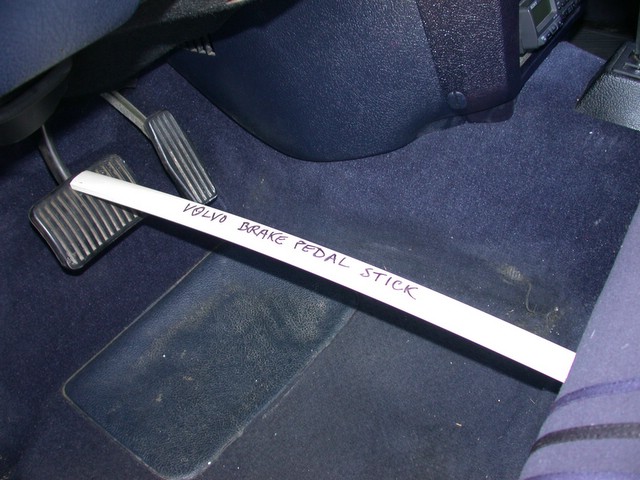|
|
|
Brembo rotors and PBR pads go on tomorrow..... and i have decided to also replace the four front and two rear rubber lines (the car does not have ABS brakes).
I have never replaced the rubber lines on this car after buying it in 1991. What is the best order to follow? Remove the calipers and rotors, r&r the lines and reinstall the calipers and rotors? Or should I do the lines independent of the rest - either first or last? I am going to flush and bleed the system, so no worries regarding brake fluid.
Thanks for any and all tips.
Dave
|
|
|
|
|
"I would recommend replacing the lines with the calipers in place BEFORE replacing the pads, that way if fluid gets on the rotors you can clean them up before installing/contaminating the new pads. I would also recommend bleeding the system with the old pads in place before installing the new ones." -Jorrell
I definitely think he has a good idea here. I replaced my stock lines on my 740T with ABS with stainless steel lines.
I couldn't remember having any issues doing it, and now I remember I wasn't doing any other brake work at the same time. I didn't have any parts seized together, but I do recall it took me a loong time. Then again, it was in my early days of DIY work.
Much luck, and hopefully you don't need it.
--
1990 740 Turbo, on its way to stock specs, maybe beyond
|
|
|
|
|
Though not much different, I recently replaced the flexible brake lines on my 760 (ABS). Unless you have figured out a way to plug the disconnected brake line(s), you'll experience a large loss of brake fluid. This will require you to keep an eye on the reservoir, filling it as necessary. I had hoped to screw a cap on the disconnected brake lines but couldn't locate a cap locally even from hydraulic shops. Disconnect the old brake line at the hard line first, then at the caliper. Reverse this order with the new flex brake line. Be careful about cross threading. Actually, the hard lines are not pure copper but rather an alloy closer to brass. Certainly, good quality flare nut wrenches and PB Blaster are helpful. If heat is necessary to break stubborn connections, start with a Bic lighter. My preference for flushing uses positive air pressure applied at the reservoir with an air compressor set to >10 psig. I modified a spare cap with a tire air stem (valve removed) to connect to the air compressor. This avoided a second person and gave me control of flushing procedure. Jorrel offers interesting tips as you have noted.
For the fun of Volvos,
Mike
--
'83 245 GLT, '92 245DL, '90 760 GLT
|
|
|
|
|
Note a correction to my post remarking about the air compressor setting. The correct setting should read < 10 psig instead of > 10 psig, that is, less than 10 psig. The notation incorrectly reads greater than 10 psig - my bad.
--
'83 245 GLT, '92 245DL, '90 760 GLT
|
|
|
|
|
Guys, if the m/c does run dry while switching out the lines would it require bench bleeding? I am using a Motive pressure bleeder and want to avoid pulling the m/c. Thanks.
|
|

|
|
...you take Art's suggestion below and use a prop stick on the brake pedal.
The question is how far down should the pedal go? That depends on whether your '91 has ABS or not.
Art is right for pre-ABS, but if you do have the ABS introduced on the '91 240's, then the the pedal needs to be held fully depressed, as described in the 700/900 Brake greenbook.
--
Bruce Young, '93 940-NA (current), 240s (one V8), 140s, 122s, since '63.
|
|
|
|
|
Dave,
There are two lines for each front wheel, there is only one rubber line that runs from the floor of the car to the axle on the driver side of the center of the rear axle.
I would recommend replacing the lines with the calipers in place BEFORE replacing the pads, that way if fluid gets on the rotors you can clean them up before installing/contaminating the new pads. I would also recommend bleeding the system with the old pads in place before installing the new ones.
Just my risk-averse opinion.
jorrell
--
92 245 299.3K miles, IPD'd to the hilt, 06 XC70, 00 Eclipse custom Turbo setup...currently taking names and kicking reputations!
|
|
|
|
|
Thanks Jorrell - that makes good sense. Appreciate the response!
|
|

|
|
Hello,
Don't be twisting on that line!!! If it doesn't come off easily STOP! The nuts have a way of binding onto the line twisting it during removal.
The lines are soft copper, so go easy on them.
Goatman
|
|
|
|
|
Goatman,
I agree with your comment about twisting off brake lines. That being said, the brake lines are much tougher that straight up copper, they are made of a copper-nickel alloy that is incredibly resistant to oxidation.
In my opinion, the use of the copper-nickel alloy brake lines was a brilliant choice by Volvo for use in cold climates where lots of road salt is used.
jorrell
ps. The lines are extruded so they are seamless, another advantage to longevity.
--
92 245 299.3K miles, IPD'd to the hilt, 06 XC70, 00 Eclipse custom Turbo setup...currently taking names and kicking reputations!
|
|
|
|
|
Jorrell, any chance I could drain the master cylinder by replacing each line and cause a problem? I am planning to top it off after each line drains and is replaced - will that work? Then comes the Motive for a complete bleed and flush....I want to be sure I avoid having to bench bleed the master again.
|
|

|
|
If you block the brake pedal just enough to turn on the brake light, the master's reservoir will not drain on your non-ABS 1991. But if you don't pull the brake light fuse, your battery may.

--
Art Benstein near Baltimore
Only Irish coffee provides in a single glass all four essential food groups: alcohol, caffeine, sugar, and fat. - Alex Levine
|
|
|
|
|
Perfect - thanks Art. And thanks to everyone.... coffee and pop tarts right now, and then out to the garage!
|
|
|
|
|
The last time I replaced brake hoses, I was installing them on a nearly bare 240 chassis, all metal lines were devoid of fluid, the rubber hoses "stainless" were new, the ABS unit was drained and rebuilt along with the master cylinder, all four brake calipers were rebuilt and empty of fluid as well.
It took two rounds of filling the reservoir with fresh fluid and lots of pumping the pedal and bleeding the calipers manually, ie. no motive system. The brakes were perfect after that.
In short, the last time I bench bled a replacement master cylinder was on a mid 70's Ford, after installing the pre-bled MC, I didn't even have to bleed the system.
jorrell
--
92 245 299.3K miles, IPD'd to the hilt, 06 XC70, 00 Eclipse custom Turbo setup...currently taking names and kicking reputations!
|
|
|
|
|
Thanks - I picked up some decent flare wrenches and am soaking the connections in PBlaster overnight..... hoping the fact it is a Southern car will make disassembly easier. I have a 30 year old MGB from around here too and have yet to have a problem loosening anything. Hope the streak continues!
|
|
|
|
|




